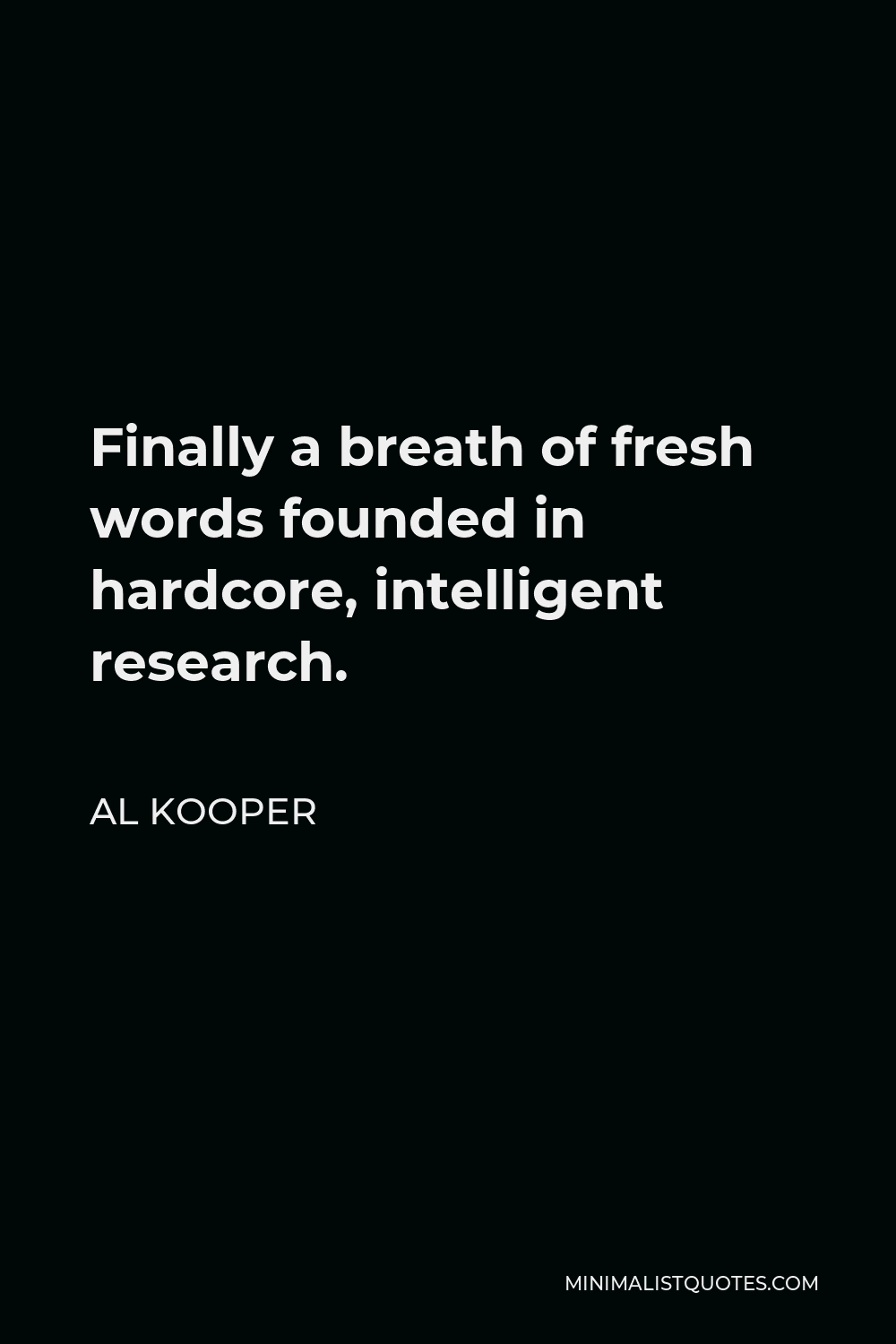Only through sheer ambition did I end up playing on [Bob Dylan sessions] and the fact that I could do that is a testament to how disorganized it really was.
AL KOOPERFinally a breath of fresh words founded in hardcore, intelligent research.
More Al Kooper Quotes
-





![Al Kooper Quote - Only through sheer ambition did I end up playing on [Bob Dylan sessions] and the fact that I could do that is a testament to how disorganized it really was.](https://minimalistquotes.com/wp-content/uploads/2022/07/only-through-sheer-ambition-did-i-end-up-playing-o-683x1024.jpg)

-





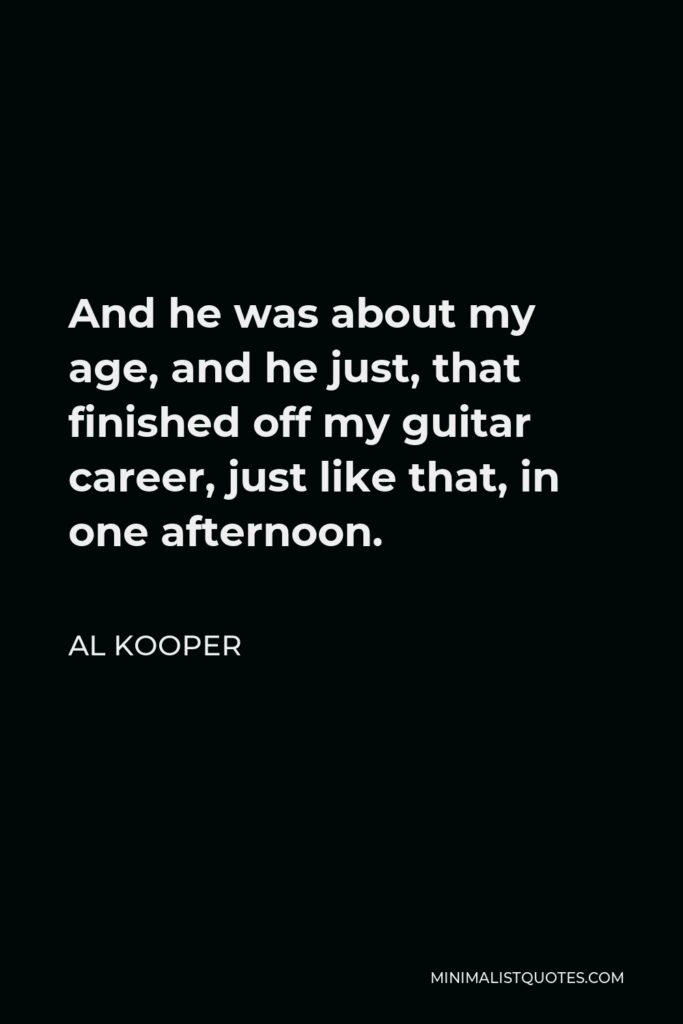

And he was about my age, and he just, that finished off my guitar career, just like that, in one afternoon.
AL KOOPER -





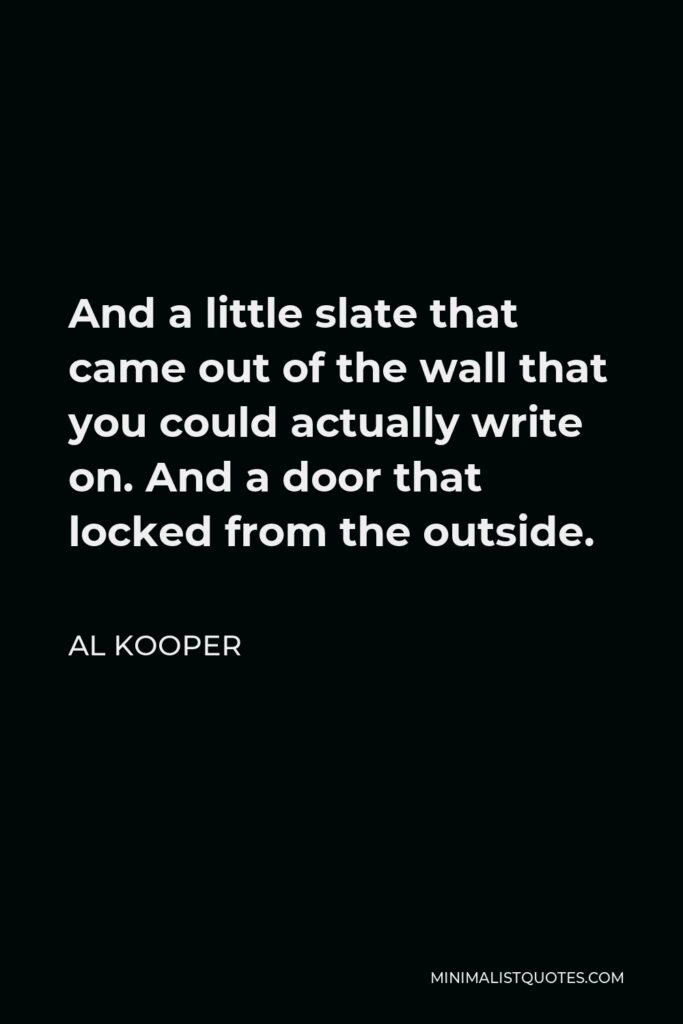

And a little slate that came out of the wall that you could actually write on. And a door that locked from the outside.
AL KOOPER -





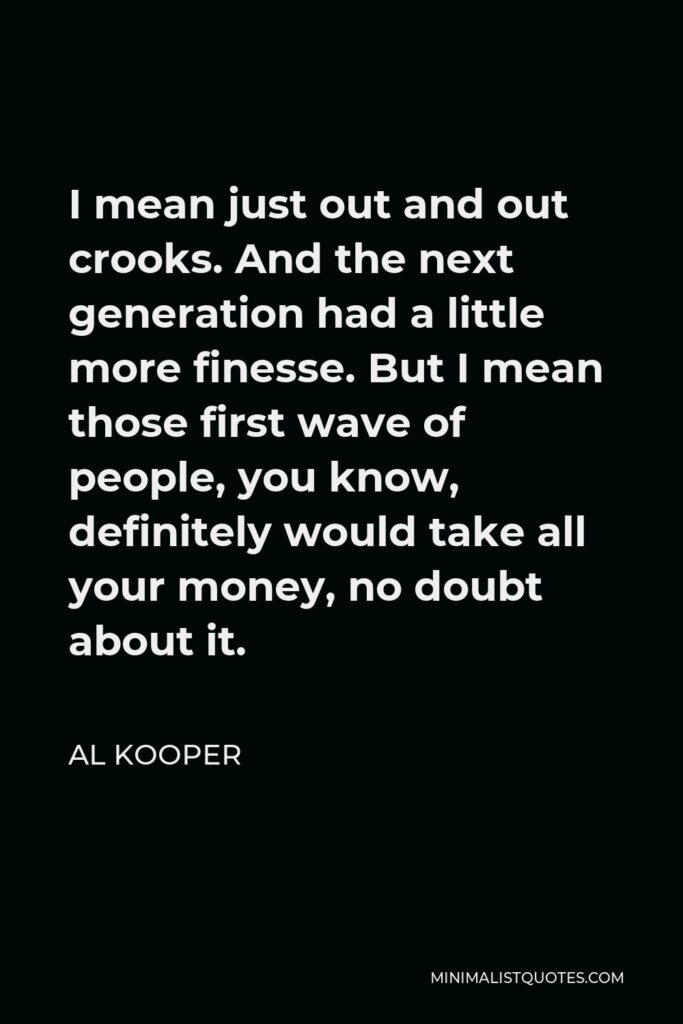

I mean just out and out crooks. And the next generation had a little more finesse. But I mean those first wave of people, you know, definitely would take all your money, no doubt about it.
AL KOOPER -





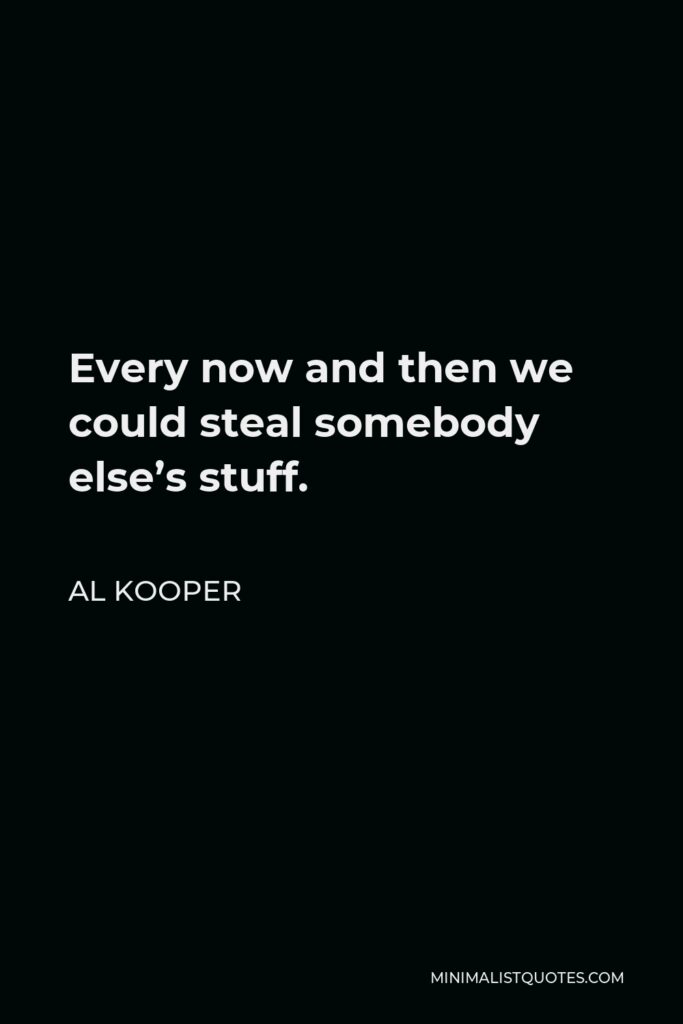

Every now and then we could steal somebody else’s stuff.
AL KOOPER -





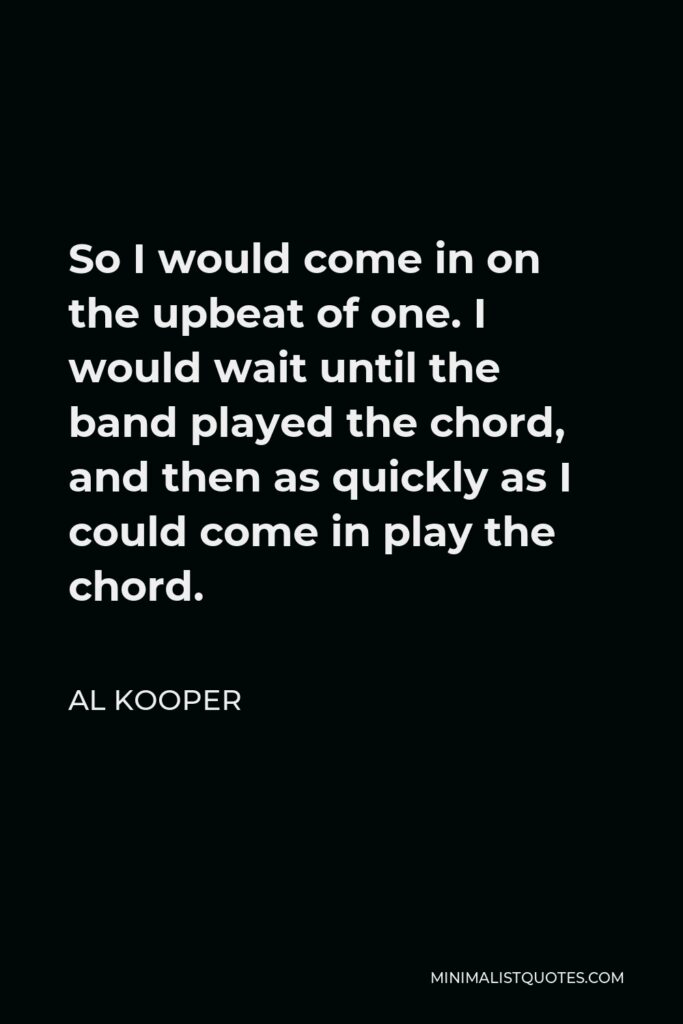

So I would come in on the upbeat of one. I would wait until the band played the chord, and then as quickly as I could come in play the chord.
AL KOOPER -





![Al Kooper Quote - The first generation from the ’50s that were in 1650 [Broadway] were pretty much all crooks,](https://minimalistquotes.com/wp-content/uploads/2022/07/the-first-generation-from-the-50s-that-were-in-165-683x1024.jpg)

The first generation from the ’50s that were in 1650 [Broadway] were pretty much all crooks,
AL KOOPER -





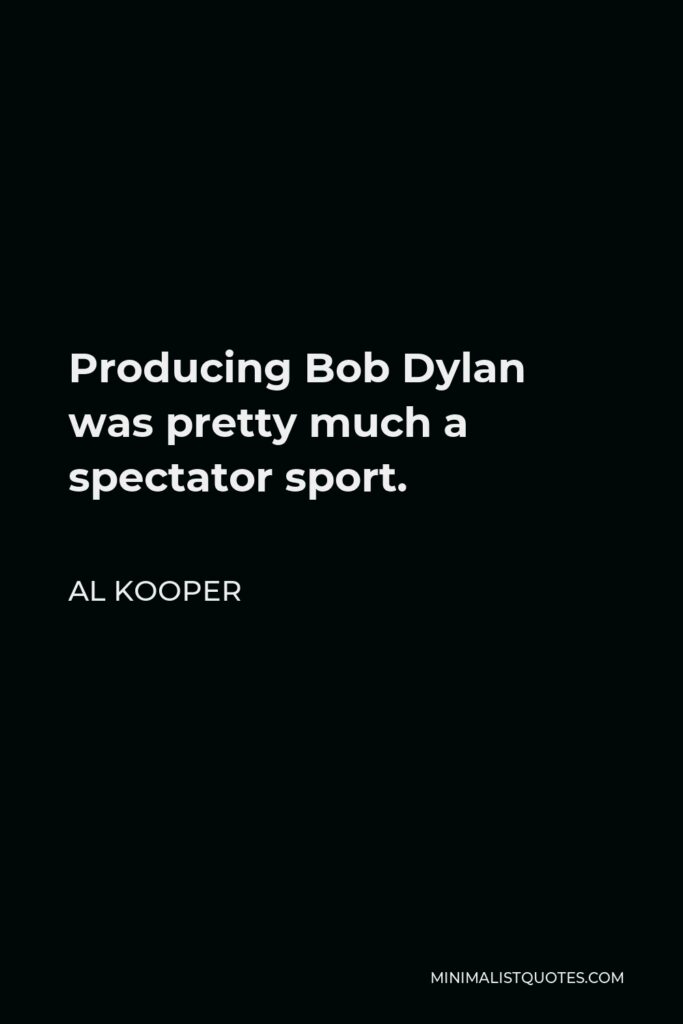

Producing Bob Dylan was pretty much a spectator sport.
AL KOOPER -





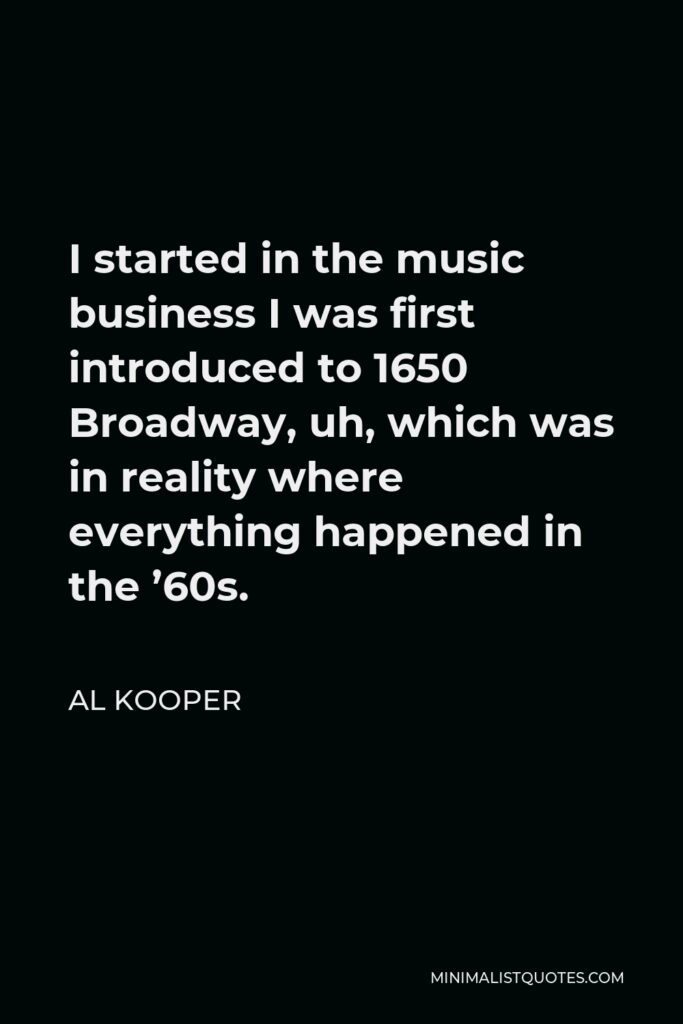

I started in the music business I was first introduced to 1650 Broadway, uh, which was in reality where everything happened in the ’60s.
AL KOOPER -





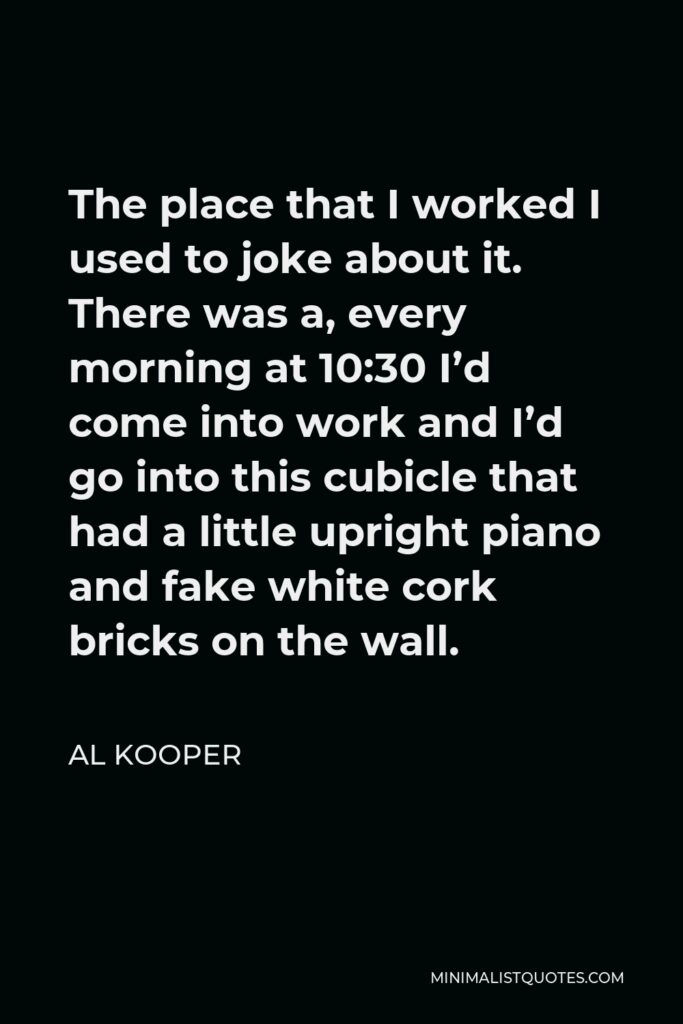

The place that I worked I used to joke about it. There was a, every morning at 10:30 I’d come into work and I’d go into this cubicle that had a little upright piano and fake white cork bricks on the wall.
AL KOOPER -





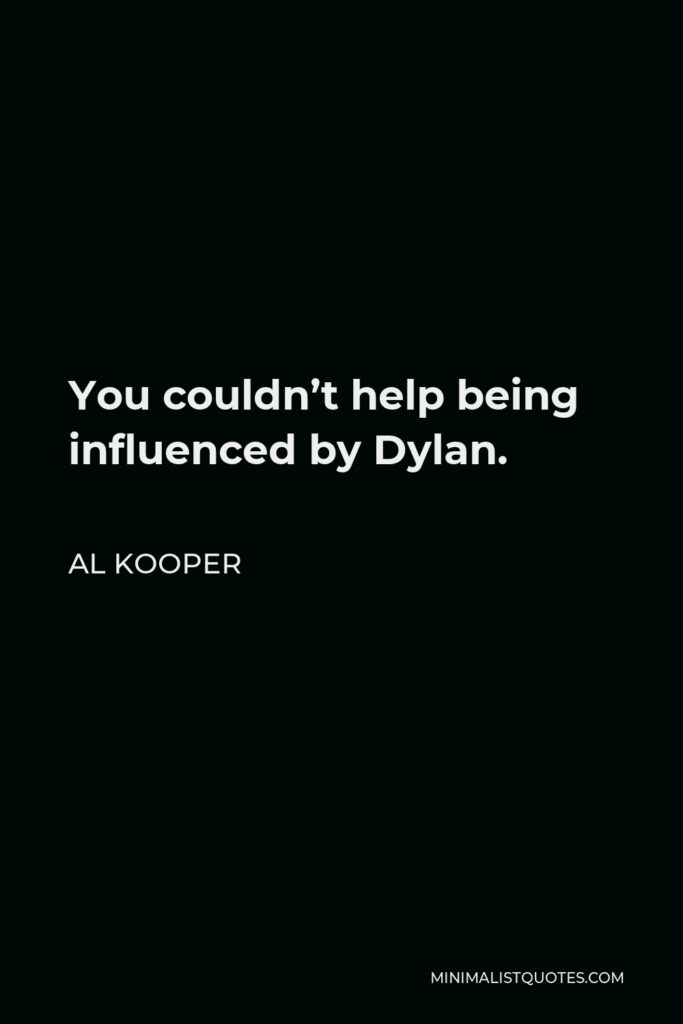

You couldn’t help being influenced by Dylan.
AL KOOPER -





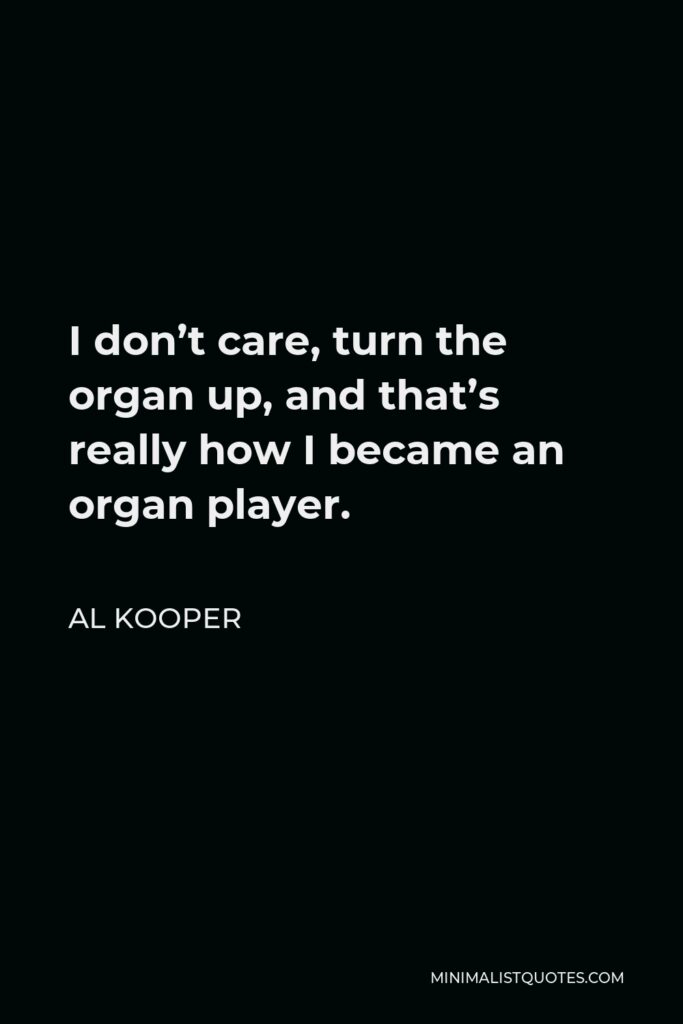

I don’t care, turn the organ up, and that’s really how I became an organ player.
AL KOOPER -





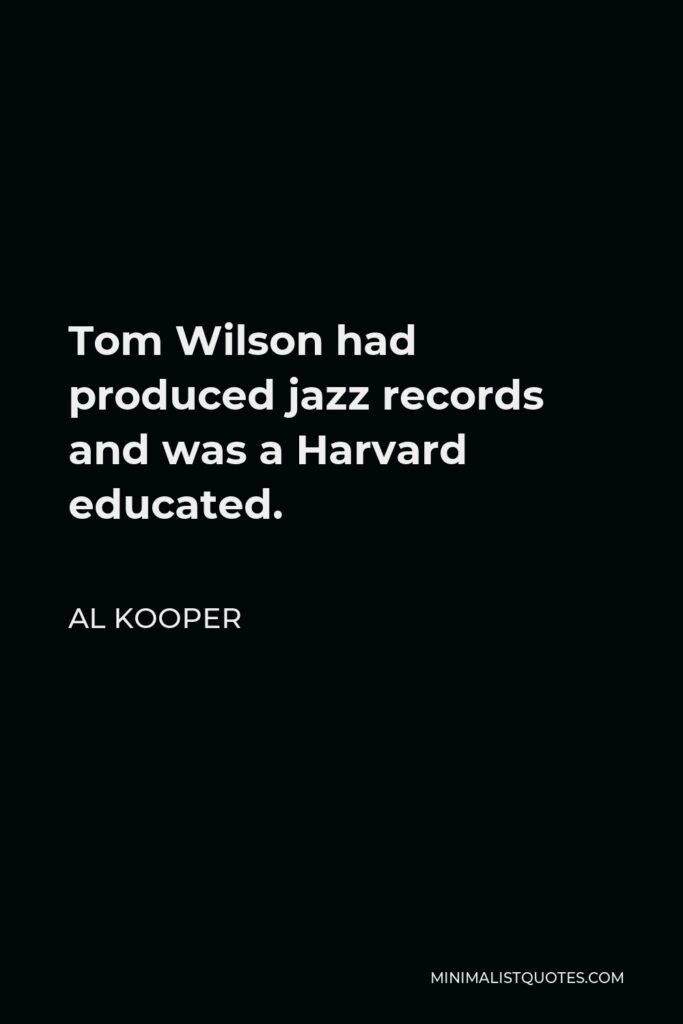

Tom Wilson had produced jazz records and was a Harvard educated.
AL KOOPER -





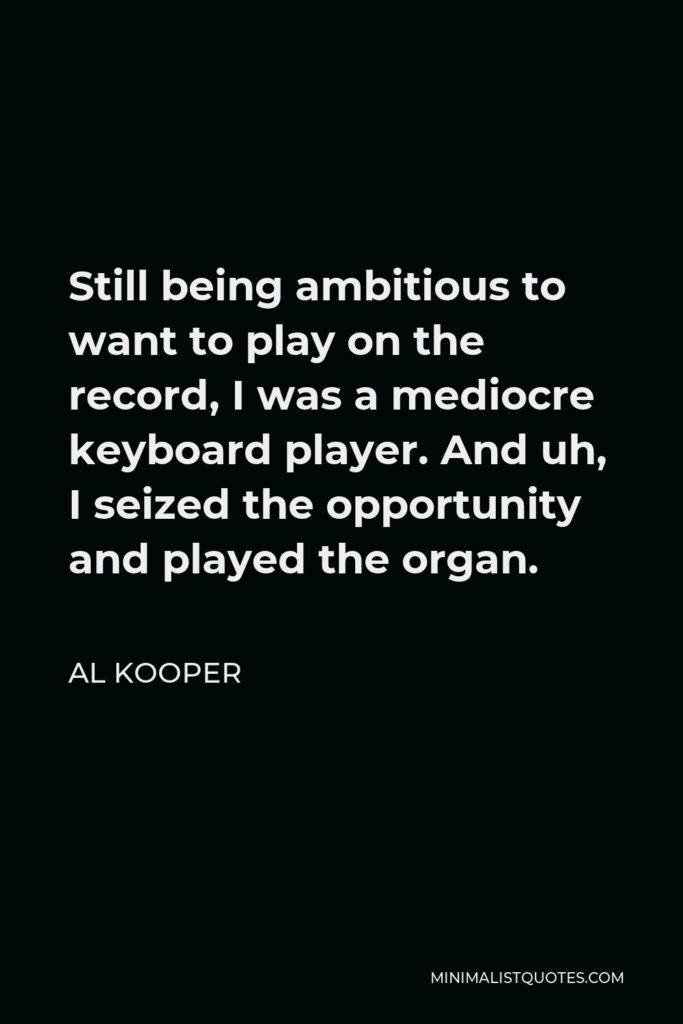

Still being ambitious to want to play on the record, I was a mediocre keyboard player. And uh, I seized the opportunity and played the organ.
AL KOOPER -





![Al Kooper Quote - The “Highway 61” album [of Bob Dylan] was produced by Bob Johnston if I’m not incorrect. And Bob Johnston was an entirely different producer than Tom Wilson.](https://minimalistquotes.com/wp-content/uploads/2022/07/the-highway-61-album-of-bob-dylan-was-produced-by--683x1024.jpg)

The “Highway 61” album [of Bob Dylan] was produced by Bob Johnston if I’m not incorrect. And Bob Johnston was an entirely different producer than Tom Wilson.
AL KOOPER -







Bob Dylan said to the producer, turn up the organ. And Tom Wilson said, oh man, that guy’s not an organ player. And Dylan said.
AL KOOPER
